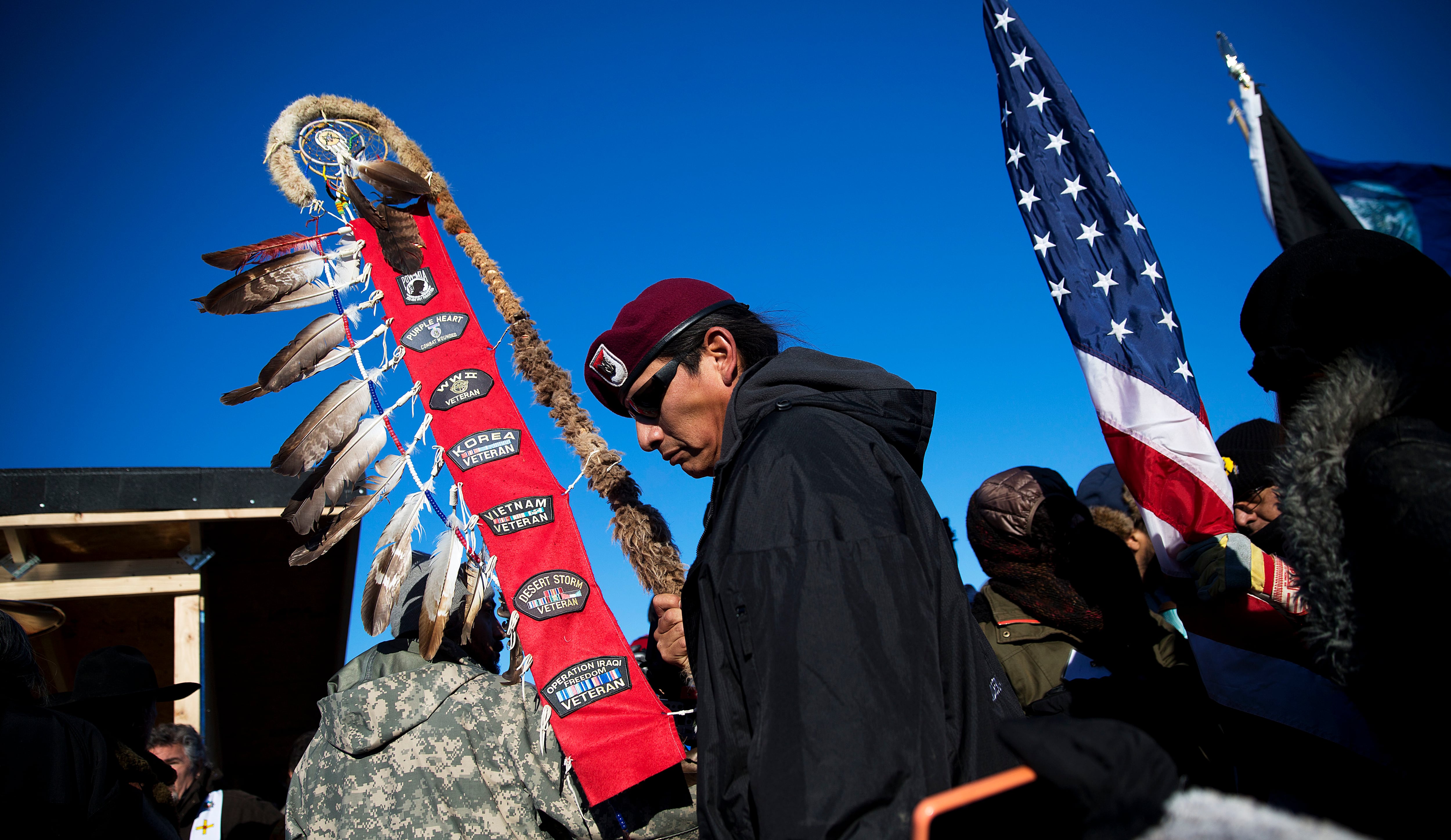CASPER, Wyo. (AP) — Decades before he became an Eastern Shoshone leader, John St. Clair was a soldier fighting in Vietnam.
The draft found St. Clair in 1966, and while he survived the war, he returned with post-traumatic stress disorder, though he didn’t realize it until many years later.
When St. Clair and other soldiers returned to the Wind River Reservation, many didn’t identify as veterans because of the stigma. They encountered protests and were shunned. Many people assumed that every soldier that fought in Vietnam agreed with the government.
“It wasn’t true at all. I was drafted, but we had a choice after we were drafted,” he said. “Do we go to Canada, or do we do what we were drafted for? Most of us, especially Native people, went ahead and went to the military.”
Like many Native soldiers, St. Clair’s service went largely unrecognized at the time. And for all that time, despite multiple generations of Eastern Shoshone and Northern Arapaho veterans, Wyoming lacked a memorial to honor their service.
On Thursday, that finally changed.
The Path of Honor, a memorial dedicated to Native American veterans, opened Thursday at the Frank B. Wise Business Center in Fort Washakie, where stones along a winding red path symbolize courage and commitment to living a purposeful life.
Lyle Wadda of American Legion Post 81 spearheaded the project that began in 2008 after the Wind River Development Fund and Post 81 partnered to create the business center. Still, even after the building and memorial’s completion, Wadda found himself in disbelief when it was finally dedicated to the public in a ceremony attended by Gov. Mark Gordon, Rep. Andi Clifford, D-Fremont County, and other dignitaries.
Wadda’s goal was to create a space where everyone is welcome.
RELATED

“We accept anyone in this post,” Wadda said at the dedication ceremony. “You don’t have to be Native American or part of another tribe. Business is open to everyone.”
St. Clair, the chairman of the Eastern Shoshone Business Council, pointed to the dedication and bravery of Native Americans who served as volunteers in the Spanish American War and in World War I, before Native Americans were granted U.S. citizenship.
“Major General Lee Gilstrap, who trained 2,000 Natives for WWI stated — and I’m quoting, these are not my own words — ‘the Indian is the best damn soldier in the Army,’” St. Clair said.
At the Wind River Reservation alone, close to 900 tribal members have served in conflicts ranging from World War I to the wars in Iraq and Afghanistan.
While Wyoming’s first memorial dedicated to Native Americans is now open, there is still more work to be done, said Jordan Dresser, chairman of the Northern Arapaho Business Council. He’s commended the veterans bringing awareness to trauma and mental health within Native communities.
“The fact that a lot of the veterans here today mentioned (mental health awareness), it’s been very welcoming and promising,” Dresser said. “It shows that it’s something to talk about publicly, and there’s no shame in it. There’s no shame in admitting that you need help.”
PTSD is a difficult subject to talk about for Felicia Antelope, commander of American Legion Post 96 and a Northern Arapaho Tribal member who spoke at Thursday’s dedication.
After deploying to Iraq in 2004 — a mission she openly objected to with her sergeant — she was injured and left mentally and physically traumatized. Since then, she’s learned to live with PTSD and how to talk openly about her struggles.
However, serving in the military was always a dream for Antelope. Her father served, along with most of her uncles. In a way, she almost felt destined for service.
“My parents talked me out of it at 18, so I ended up going to college first,” Antelope said. “After college, I decided to volunteer. My parents really didn’t say anything then because I had my own life and my own apartment, but they tried talking me out of it again … but they were really happy.”
She graduated at the top of her class, earned sergeant stripes and made it to the Commandant’s List by achieving perfect scores in all her training.
Antelope went into the military because of a sense of duty, but she also did it for future generations.
“I think that ties in a lot with the Arapaho,” she said. “Because we’re always thinking ahead. How can we make this place better for the next generation?”




